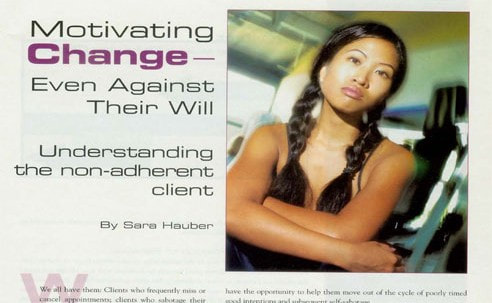Using the Transtheoretical Model with Coaching and Fitness Clients
Coaches use many different theories, tools, and practices to assist clients on their way from unsatisifying life to satisfying life, boredom to joy, stuck to liberated. One such theory that really turns out to be useful is Prochaska and DiClemente’s brilliant-yet-simple Transtheoretical Model of Behavior Change. The whole model is worth close study, but the most useful bit for coaches is the Stages of Behavior Change.
Since its inception, the model has experienced some backlash. But as a coach with decades of experience, I can attest that the stages marry closely with many people's life experience.
Can the TTM explain people's lack of readiness? No.
But it can be a helpful tool for fitness and wellness professionals so they don't attempt to push their clients and risk losing their trust.
In 2007, I wrote this article for Fitness and Wellness Professional magazine. I had been a personal fitness trainer for 7 years, and I realized that I needed all the behavioral theory I could get in order to really help clients with low motivation and resistance to changing health behaviors. This theory saved me and my clients from loads of frustration.
If you’re a coach or a fitness trainer, the Transtheoretical Model of Behavior Change will likely help you and your clients, too. You can download a PDF of the article, below.
Since its inception, the model has experienced some backlash. But as a coach with decades of experience, I can attest that the stages marry closely with many people's life experience.
Can the TTM explain people's lack of readiness? No.
But it can be a helpful tool for fitness and wellness professionals so they don't attempt to push their clients and risk losing their trust.
In 2007, I wrote this article for Fitness and Wellness Professional magazine. I had been a personal fitness trainer for 7 years, and I realized that I needed all the behavioral theory I could get in order to really help clients with low motivation and resistance to changing health behaviors. This theory saved me and my clients from loads of frustration.
If you’re a coach or a fitness trainer, the Transtheoretical Model of Behavior Change will likely help you and your clients, too. You can download a PDF of the article, below.

